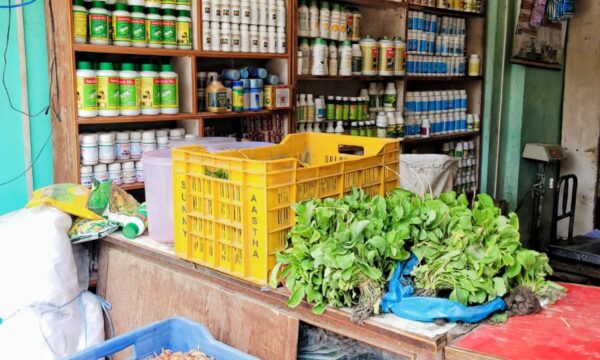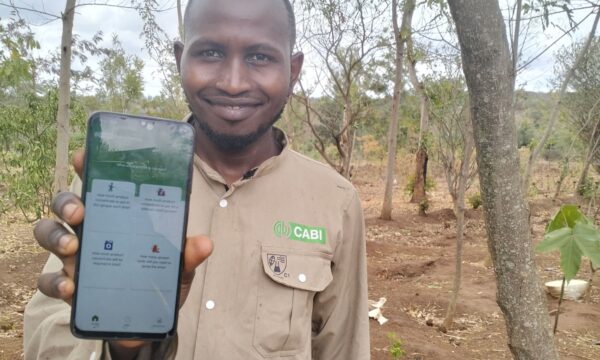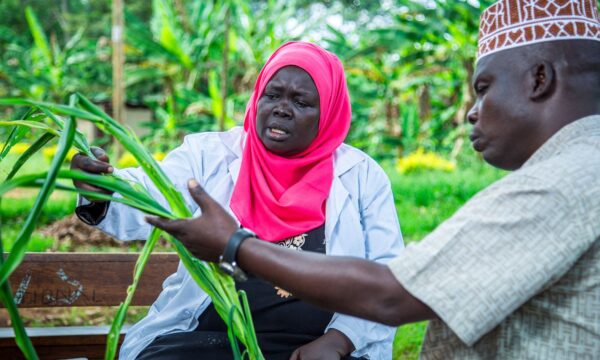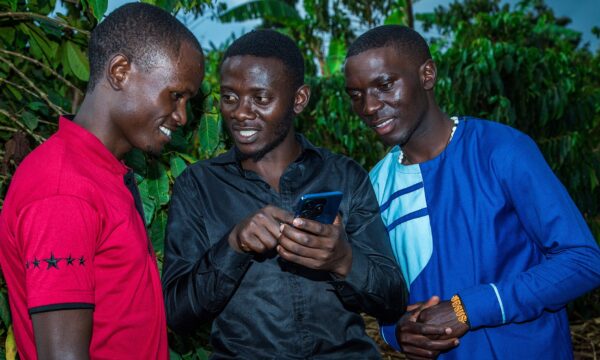Women farmers in Ghana face significant barriers to accessing agricultural extension services. Many women in low- and middle-income countries face similar challenges. The services are often designed for men and give them an advantage when it comes to farming productivity. Conversely, with a lack of access to extension services, women farmers on average produce 20-30% less than men. With greater access to agricultural advice, women have the potential to significantly boost not only their food production but also their incomes and livelihoods for themselves and their communities and families.
CABI’s assessment in Ghana’s Bono and Central regions found that social norms are at the root of discouraging women’s participation. These norms include, for example, the belief that farming advice is only valuable for men and that cash crops are not suitable for women. Moreover, they reinforce the perception that successful women farmers are bossy or “too proud”. In some communities, extension agents themselves assume they should only target men for advice. These gendered beliefs hinder women’s potential.
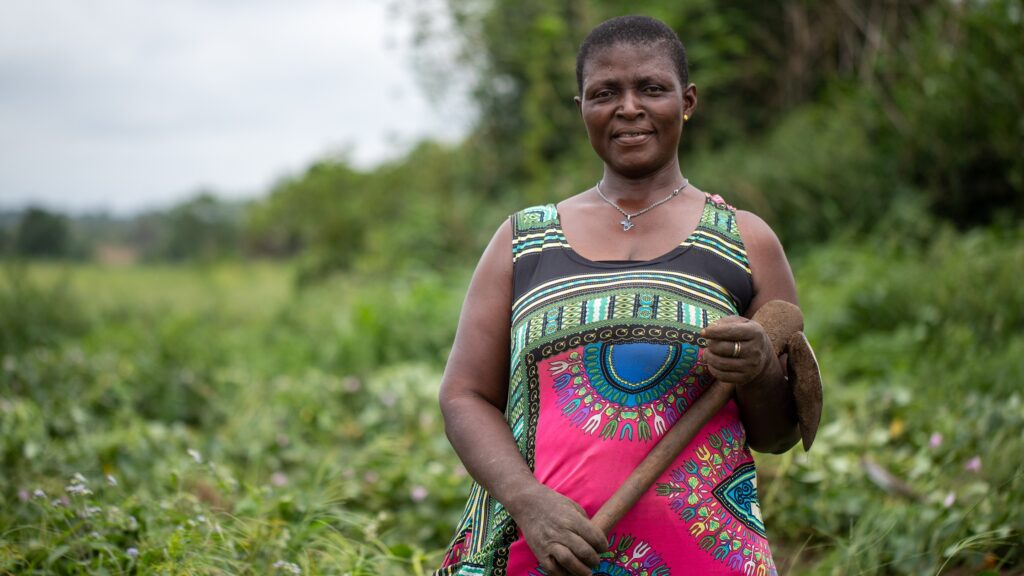
However, a radio campaign in Ghana has changed this perception. Women – and men – are now challenging social norms, seeing women as farmers in their own right. Empowered with new confidence, the women who listen to these radio programmes are taking on new roles in agriculture. This blog looks at the impact the campaign has had on women farmers in Ghana.
Taking action using gender-focused radio programmes
To address gender inequality, CABI, through the PlantwisePlus programme, promoted access to climate-smart agricultural advice for women farmers in Ghana. One key initiative was the Green Leaf radio magazine programme. Through this, Farm Radio International developed an advisory platform to address social norms. Operating in several regions, it delivered radio programming to encourage women’s involvement in farming. Critically, the campaign helped to ensure that both men and women benefit equally from extension services.
The campaign focused on addressing social barriers to women’s participation in agriculture. They established dialogues to counter the types of social norms that limit equitable access to extension services. Specifically, the project developed a 16-week radio programme through stakeholder engagement and a technical workshop. The programme selected eight radio stations across four of Ghana’s regions to broadcast in two local languages. It covered a range of relevant topics, including:
- Addressing barriers such as land access, credit, and legal rights
- Building women’s confidence, leadership and participation
- Encouraging the use of technology and entry into commercial farming
- Promoting shared decision-making and recognizing women as farmers
- Reducing childcare, mobility, and time constraints
When words empower: The lasting impact of radio-focused education
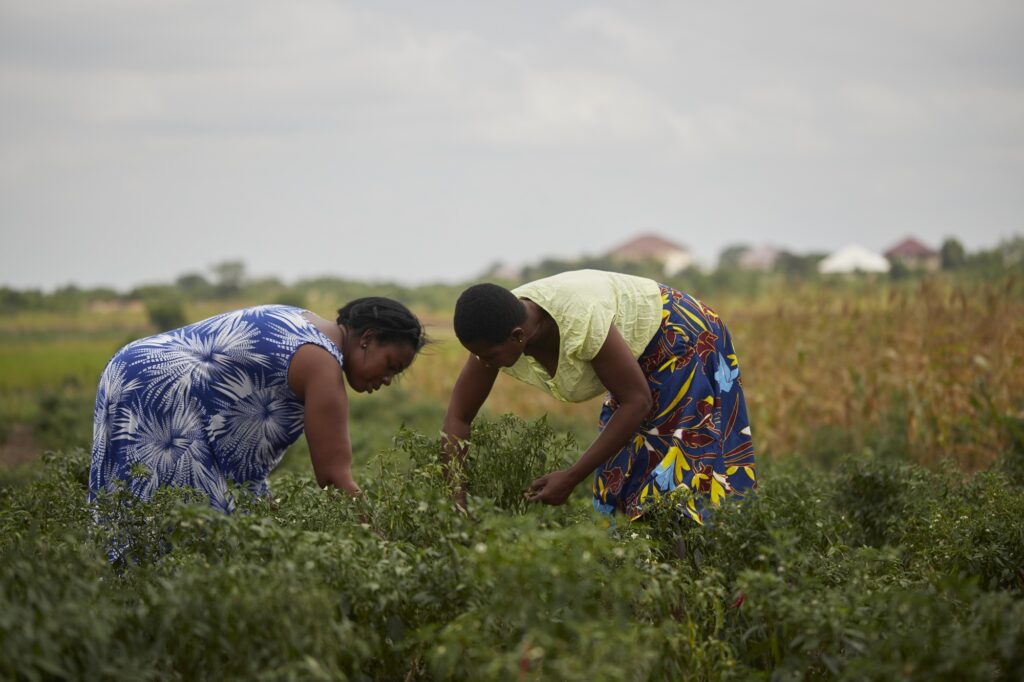
The project was a huge success, reaching over half a million listeners within the target areas. In total, the campaign aired 123 live programmes. Many farmers – men and women – reported an increase in knowledge about the subjects covered. This helped to build the confidence of women farmers in Ghana. Men also reported working jointly with their wives to improve productivity, thanks to the knowledge gained from the radio programmes.
Proud to be a farmer in her own right
For 24 years, Esther Benko farmed cassava and plantain in Goaso. She often questioned her place as a woman in agriculture. Farming felt like a man’s world until she heard a radio programme about ‘Women as Farmers.’ It was a turning point, affirming her value and opening her eyes to the link between farming and health. Inspired, Esther now improves her techniques and prioritizes her well-being.
With new confidence, she encourages the programme’s creators to continue empowering women like her. Speaking of the radio campaign, she said:
“I no longer see myself as just helping. I’m a farmer, and I’m proud of it. Your words do more than inform – they inspire. Farmers like me don’t just need knowledge, we need encouragement. Thank you for reminding me that I belong in this field.”
Empowered to make her own decisions
Akosua Manu is a farmer from Wenchi in the Bono East Region. She has been farming for over 30 years. The radio campaign helped her to gain valuable knowledge that improved her farming practices. Moreover, it helped her to understand her value as a farmer. “The topic that interested me the most was including women in decision-making roles,” she says. She began to see herself as someone with the right to influence outcomes.
The radio programme also taught Akosua the importance of proper safety practices when using pesticides on her farm. This has helped to protect her health when farming.
“At first, I didn’t know that you have to dress appropriately before spraying pesticides. But after listening to your programme, I learnt how to dress properly to protect myself when spraying my crops,” she explains.
Shared responsibility transforms a family farm
Agya Ahen has spent 22 years cultivating cassava, cocoa, and yam in KEEA District. At 65, he explains how the radio campaign’s messages have helped to transform his family. “I’ve always believed in hard work and the value of learning,” Agya reflects. “But recently, I discovered something even more powerful: partnership.”
Inspired by insights gained from the campaign, Agya made a bold decision. He empowered his wife to take charge of a number of their farms. It was a move borne of trust and a newfound understanding of the critical role women play in agriculture. “The expert advice I received on farming practices was a game-changer,” he explains. “It not only improved our yields but also opened my eyes to how much more we could achieve as a team.”
This decision transformed not only their farm’s productivity but also their lives. It brought a renewed purpose to their household.
“By giving my wife ownership of part of our farming operations, I’ve seen a significant shift in our family dynamics,” he shares. “The peace and unity we now experience is proof that true empowerment benefits everyone.”
Agya is grateful for the knowledge and guidance provided through the programme. He sees himself as more than just a farmer. He is a partner, a mentor, and an advocate for change. “I owe so much to the lessons I’ve learned from your programmes,” he says. “They’ve shown me how to farm better and live better. This is just the beginning of what we can accomplish together.”
Agya’s journey is a strong example of how education and empowerment can transform lives. Men who champion gender equality are bringing about positive change in their communities. With the proper knowledge and a spirit of collaboration, there is no limit to what men and women farmers can achieve.
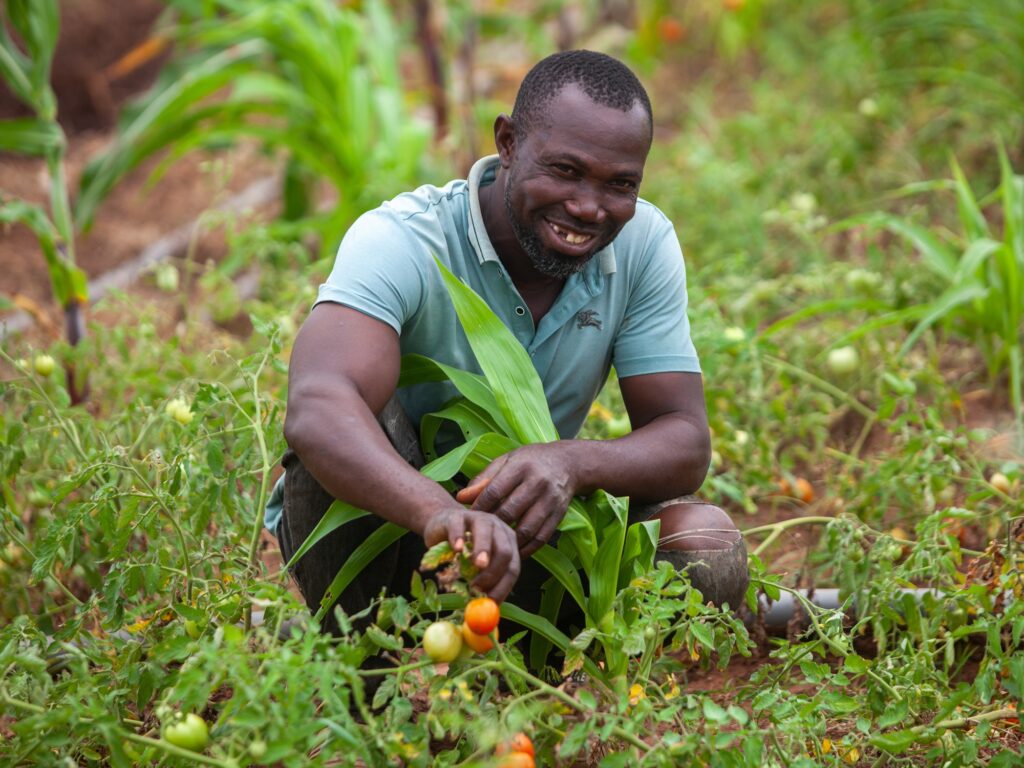
Transforming communities by including women farmers in Ghana
When women farmers in Ghana gain access to equal opportunities, knowledge and support, they can overcome deep-rooted social barriers and unlock their full potential. The success of this gender-focused radio campaign demonstrates two things. Firstly, changing mindsets and promoting shared responsibility boost productivity. Secondly, development communication empowers individual women but also strengthens families and communities. By investing in women, Ghana’s agricultural future becomes brighter. An inclusive community shows that true progress comes when everyone has a seat at the table.
Read more:
Empowering women farmers through Gender Technical Working Groups
Empowering women farmers in Pakistan with pest control knowledge
PlantwisePlus gratefully acknowledges the financial support of the Directorate-General for International Cooperation, Netherlands (DGIS); European Commission Directorate General for International Partnerships (INTPA); UK International Development from the UK government; and the Swiss Agency for Development and Cooperation (SDC).
Related News & Blogs
How PlantwisePlus and partners are supporting Assam’s agricultural future
From July to December last year, Assam Agricultural University (AAU) in Jorhat hosted a series of initiatives under the CABI-led PlantwisePlus programme to strengthen plant health services and enhance crop productivity. Co-organized by CABI, M. S. Swam…
15 January 2026

